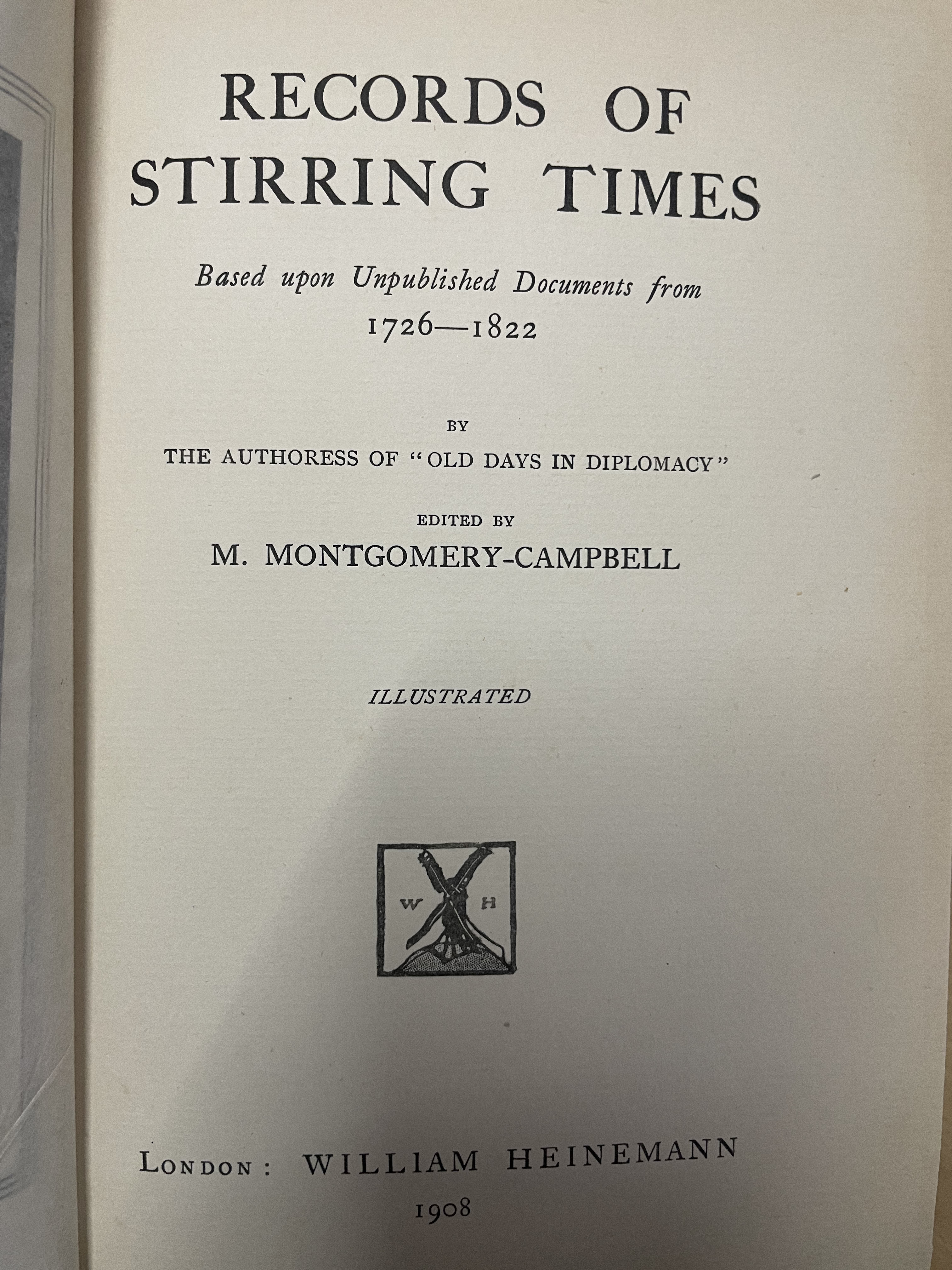Records of Stirring Times

About
Summary
Exquisite
TOC
Details
Related
URL
Images
Overview
Records of Stirring Times is a historical narrative penned by M. Montgomery Campbell, which offers an insightful and poignant account of various tumultuous periods in the history of British Columbia, Canada. Written with a keen eye for detail and a deep understanding of both the local culture and the broader political landscape, the book chronicles the lives of key figures, the events that shaped the region, and the challenges faced by the people who lived through these times. Its importance lies in its ability to capture a formative period in the history of Canada, one that marked the transition from a largely indigenous society to one dominated by European settlers, industry, and the development of national institutions.
Key Themes
Colonialism and Indigenous Displacement
One of the central themes of Records of Stirring Times is the impact of colonialism on the indigenous peoples of British Columbia. Campbell describes the arrival of European settlers and the fur traders who initially established trade relations with the indigenous groups. As the book progresses, Campbell highlights the gradual displacement of these communities, both physically and culturally, through the influx of settlers, the establishment of colonial rule, and the development of industries that eroded traditional ways of life.The Struggle for Identity and Autonomy
The question of identity is another critical theme. As British Columbia was incorporated into Canada and underwent significant political and social changes, the region's inhabitants—including both indigenous and settler populations—struggled to define their place within a larger national framework. The tensions between those who sought to maintain the colonial legacy and those who wanted to assert a uniquely British Columbian or Canadian identity are explored in the book, particularly in relation to the construction of the Canadian Pacific Railway.Economic Transformation and Development
The economic shifts that took place in British Columbia during the time of the book are also central. The fur trade, gold rush, and the advent of the railroad each played a pivotal role in shaping the economic landscape of the region. Campbell highlights how these events not only shaped the fortunes of individuals but also determined the future trajectory of British Columbia's development.Resilience and Survival
Throughout Records of Stirring Times, Campbell emphasizes the remarkable resilience of individuals and communities, whether they were indigenous peoples fighting for their lands and rights, settlers adjusting to the hardships of frontier life, or workers contributing to the construction of major infrastructure projects like the railroad. The book presents a sense of survival in the face of adversity, showing how people adapted and endured through some of the most difficult circumstances.
Cultural Significance
Records of Stirring Times holds immense cultural significance, especially within the context of Canadian history. The book serves as a primary source for understanding the early history of British Columbia and its integration into Canada. Its portrayal of indigenous peoples, settlers, and various cultural groups provides a balanced view of the conflicts and complexities that arose during the colonization of the region.For many Canadians, this book is an invaluable resource for understanding the foundations of modern Canadian society, particularly in terms of the relationships between the indigenous peoples and settlers. It highlights the deep divisions that existed during this period, many of which continue to have echoes in contemporary discussions surrounding reconciliation and indigenous rights.
Effects on Society
Upon its release, Records of Stirring Times made a significant impact on both the academic and public understanding of British Columbia's history. It brought attention to previously overlooked aspects of the region's development, such as the complexity of indigenous-settler relations and the harsh realities faced by settlers and workers during the construction of the Canadian Pacific Railway.The book's deep engagement with the themes of colonialism, survival, and resilience resonated with many readers, particularly as Canada was undergoing a period of national reflection. It forced readers to confront the darker aspects of Canada’s history, such as the oppression of indigenous peoples and the ways in which economic and political systems were built at the expense of marginalized communities.
Conclusion
Records of Stirring Times by M. Montgomery Campbell remains a seminal work in understanding the early history of British Columbia and its broader implications for Canadian history. Through its rich historical narrative, the book offers readers a window into the struggles, triumphs, and enduring resilience of the people who shaped the province and, by extension, the nation. By exploring key themes such as colonialism, economic transformation, survival, and identity, Campbell crafts a compelling account that not only preserves the historical legacy of the region but also serves as a call to reflect on the complex and sometimes painful past that continues to influence Canada today. Its cultural and societal significance cannot be overstated, as it played a key role in shaping the collective memory of British Columbia and Canada at large.
Title
Records of Stirring Times
Author
M Montgomery Campbell
Name of Publisher
William Heinemann
Publish Date
1908
Subject
Historical account
Vintage
1901-1947
Category
Literary
Sub Category
Biography
Rarity
RARE
